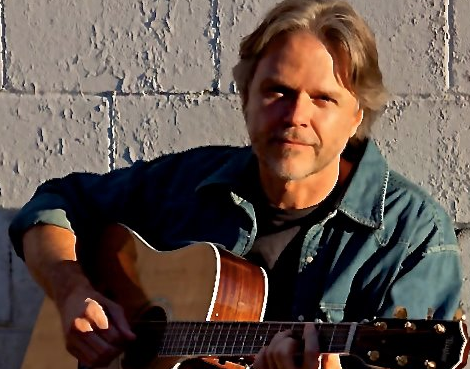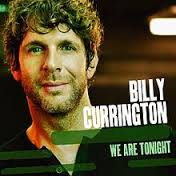

Marc Beeson remembers a different kind of traffic jam when he moved from Los Angeles to Nashville in 1990. In those days, driving into Music Row from Williamson County, he might occasionally get stuck behind a hay truck on Hillsboro Road.

Today the city’s skyline and the musical landscape are dramatically different, yet Beeson remains a consistently capable songwriter in the community. In the 1990s, he made a name for himself as a co-writer of Restless Heart’s “When She Cries.” Teaming with Sam Hunt and Josh Osborne two decades later, he wrote Billy Currington’s No. 1 hit, “We Are Tonight.”
Meanwhile his rich and diverse catalog also offers cuts by Jason Aldean, Exile, Lady Antebellum, Martina McBride, Reba McEntire, Ronnie Milsap, Ashley Monroe, LeAnn Rimes, Kenny Rogers, and more.
Just before the Christmas break, Beeson visited MusicRow to share memories and wisdom from his 25 years in Nashville.
MusicRow: What prompted your move to Nashville?
Beeson: An opportunity came up and I came here. Paige Levy, who was working A&R at Warner Bros. then, had heard some of my music and asked if I wanted to come and visit. So I came for a week. And it was a mind-bending experience for me. I’d never been anywhere where the culture was so songwriter-friendly, so musical. That week, she set me up with Robert Byrne, and J.D. Martin, and Bob DiPiero. Great writers and we had great conversations. I remember calling back to L.A., saying, “I don’t know about you guys but I am moving to Nashville.”
How did you go about making connections?
Thanks to my ‘in’ at Warner Bros., I met some people. We got Mark Bright and Thom Schuyler to produce my initial project when I first came. Thom and Robert Byrne heavily influenced me in terms of writing. I knew immediately when I got into a room with those guys that the bar was set way higher, way higher, than I thought it was. That was probably the single most important thing that happened to me, was being able to write with guys that good when I got here. The gap I had to make up was huge.
I know you had a deal with BNA in the ‘90s, and also with Curb as a member of Burnin’ Daylight. When you moved here, was it a goal for you to be an artist?
 Yeah, I had a goal to be an artist. The thing about being an artist is that you want it really bad, but you don’t really know what it is until you get it. You get thrown into it. The Warner Bros. thing didn’t work out, but it was a great education for me in terms of dealing with a label, and picking songs, and recording, all that. And when that went away, I was trying really hard to get another deal.
Yeah, I had a goal to be an artist. The thing about being an artist is that you want it really bad, but you don’t really know what it is until you get it. You get thrown into it. The Warner Bros. thing didn’t work out, but it was a great education for me in terms of dealing with a label, and picking songs, and recording, all that. And when that went away, I was trying really hard to get another deal.
I had signed at EMI. Mark Bright, who was the other producer, and Robin Palmer, Blake Chancey and Celia Froehlig all signed me there. That was an amazing place to walk into. That’s a whole story unto itself. It was the old Combine building before they refurbished it. The history of that place was unbelievable. Guy Clark was there, Richard Leigh, Wayland Holyfield. I mean, it was high cotton. I walked through the halls of that place for six months and didn’t say a word so I wouldn’t sound stupid. But I’m digressing.
This was the beauty of signing with EMI. There were companies that offered me deals simply because I was with Warner Bros. They didn’t know if I could write but they were going to offer me a deal. There were a lot of people who did that, but EMI wouldn’t. They must have seen me play six times before they finally offered me a deal.
I remember having a conversation with Robin and Celia one day, and they said, “Well, we want to know that you can write, because this artist thing – it could be great, or it could go away. But if we’re committed to you, if you’re a real writer, then that’s what we’re signing you for.“ That was an education for me right there. And it honestly saved my butt so many times that I am a writer. If I was just an artist, I would have been long gone years ago. I would have nothing, no reason to be able to be here.
Somehow in between those record deals, somebody would discover a song and they’d record it, and I’d have a hit or something, and that’s what kept me in town.
Speaking of that, Jason Aldean cut one of your songs on his first album, before anybody knew who he was. Did you know much about him at that point?
 I didn’t know anything about Jason. Jim Collins and D. Vincent Williams were both writing at Warner/Chappell and I think Jason was writing over there. Michael Knox was working with him. They were looking for songs and they loved this song, “I Believe In Ghosts” [written by Beeson, Collins and Williams]. I believe that’s the very first song they cut. In typical record company fashion, he got a deal and it was like, “It’s going to be the first single!” It was never a single. (laughs) But we did get a song on his first record.
I didn’t know anything about Jason. Jim Collins and D. Vincent Williams were both writing at Warner/Chappell and I think Jason was writing over there. Michael Knox was working with him. They were looking for songs and they loved this song, “I Believe In Ghosts” [written by Beeson, Collins and Williams]. I believe that’s the very first song they cut. In typical record company fashion, he got a deal and it was like, “It’s going to be the first single!” It was never a single. (laughs) But we did get a song on his first record.
Every publishing company you go into, there’s a new artist, and you never know who might pop. I write over at Downtown Music and there are a couple of artists over there. Jillian Jacqueline – she’s a new artist and she blows me away. I’m really lucky to get to write with her. Sara Haze and Ben Caver are doing a duo thing. They’re amazing. And there’s a bunch of other writers over there. This town is crazy with talent right now.
I had this epiphany. I remember when I first came to town, I was a young writer trying to learn everything I could from the older writers. And now I’m an older writer trying to learn everything I can from the younger writers. I swear! I was telling somebody, “I like writing with younger writers,” and I think it was Jim Collins who said, “Well, that’s just about everybody, isn’t it, Beeson? Everybody’s younger than you!” (laughs)
A few weeks ago, Ashley Monroe got a Grammy nomination for The Blade, and you co-wrote the title track. At this point in your career, what does that mean to you?
Well, I was just writing with Allen Shamblin yesterd ay and it was my last write of the year. He’s the most calm, patient, quiet writer that I know. He can’t write anything that’s not true. He can’t be in the room if it’s not true, or if it doesn’t resonate in some way. We were talking about that song and several other songs that we’ve written that we love that haven’t necessarily been hits, but that we’re super proud of, and ended up being good cuts. That is a special song.
ay and it was my last write of the year. He’s the most calm, patient, quiet writer that I know. He can’t write anything that’s not true. He can’t be in the room if it’s not true, or if it doesn’t resonate in some way. We were talking about that song and several other songs that we’ve written that we love that haven’t necessarily been hits, but that we’re super proud of, and ended up being good cuts. That is a special song.
We were talking about how you sit in the room and write the song, and once it gets out of the room, it’s out of your hands. You only have the control of doing what you do in the room, and then it goes out. We co-wrote that with Jamie Floyd, and she’s an amazingly talented young lady. She did a beautiful version of that song on her EP.
I was blown away that Ashley did a song that she didn’t write. I was told that she was already done with the record when that song came in. And another fluky thing is, Matt Michiels, who runs the tape room at Warner/Chappell, is the guy who pitched the song. He’s a great guy with great ears. When you think about it, there’s probably nobody who knows that catalog better than Matt does. He went out of his way to pitch that. Ultimately, we’re all mostly thankful to Matt!
Obviously, we’re thrilled that she got a Grammy nomination and I’d love to hear that song on the radio. But ballads are rare now, especially a ballad like that.
That’s true. So much has changed since the time you moved here in 1990, but what would you say has remained the same?
I still think that this is a song town. I still think that no matter what the style is, no matter what the town looks like, no matter who’s in charge of these labels anymore, I still think that if you walk in the door with a great song, that’s what works. That’s the deal. That’s the motor in everybody’s engine. If you walk in with a hit song, you can do something. And that’s what keeps me going. I don’t make any excuses. I’m just trying to go in there every day and write something as good as I can write it.

Category: Featured, Publishing


